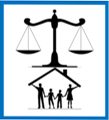Protecting Your Personal Injury Settlement During Divorce
Enduring divorce can be a complicated process that will require you and your soon-to-be-ex to develop agreements around critical aspects of your life. Sorting out custody agreements, assets, and property is often challenging. Even when couples have every intention of working together amicably, the process can quickly become complicated. If you have received a personal injury settlement and are in a divorce process, you may be concerned over how these assets will be divided. This is where a divorce lawyer will play a critical role. With their support, they can help guide you through the process so that you receive the best outcome possible.
Separate vs. Community Property
When divorce is involved, many people are overcome by emotion and concerned over how the process will impact their life moving forward. Divorce can be challenging, and you will likely want to know which property will need to be shared and what you will retain for yourself. When initiating the divorce process, it’s crucial to have an understanding of the difference between separate and community property:
Separate Property: This property belongs to one spouse. Typically these are assets acquired by one party before the marriage, certain types of inheritance, and some personal injury settlement awards.
Community Property: Also known as marital property, is property that both parties share. This includes assets that are gained throughout a marriage. It’s also essential to be aware that this may include debts or losses as well.
Divorcing couples should know that the way assets are divided will largely depend upon where they live. In states that follow community property laws, everything acquired during the marriage is divided equally. In states that observe equitable distribution laws, the property typically belongs to the spouse who acquired it. However, during divorce, assets are divided equitably. To learn more, it’s critical to consult with an experienced divorce lawyer in your area.
Factors to Keep in Mind
When it comes to divorce and a personal injury settlement, there are several factors that you will need to keep in mind. Typically when you receive a personal injury settlement, it’s intended to assist with covering losses incurred from the accident. However, know that during divorce, it’s essential to understand that depending upon the settlement, and the damages that were suffered, some of the proceeds may be considered marital property. In personal injury cases, there are a few types of damages to consider:
Economic Damages: medical expenses, lost wages, property damages, etc.
Pain and Suffering: loss of enjoyment, loss of consortium, emotional distress, etc.
Punitive Damages
Some losses incurred during the marriage may impact both parties, which may allow for portions (typically economic damages) of the personal injury settlement to be shared. Damages that were directly intended for the injured parties’ specific losses, such as loss of enjoyment, may be considered separate property.
As the lawyers at Cohen & Cohen explain, it’s important to know that those enduring a divorce with a settlement at stake should always consult with an experienced lawyer to ensure your situation’s specifics are taken into consideration. Contact a divorce lawyer as soon as possible so that you may receive the counsel you deserve.


